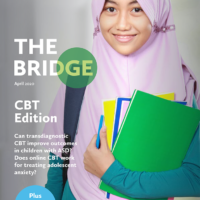Brain
-

Does late-onset ADHD share the same neurocognitive markers as childhood-onset ADHD?
Researchers in the Netherlands have published their findings from a 6-year prospective, longitudinal study that aimed to identify neurocognitive markers of late-onset attention-deficit/hyperactivity disorder (ADHD).
Read more -

Paediatric anxiety disorders confer a considerable public health burden
Anxiety disorders usually begin in childhood or adolescence and are the most common mental health condition across the life span.1,2 Consequently, intense research efforts are focused on delineating the underlying mechanisms of paediatric anxiety so that we can better identify those at risk and intervene early.
Read more -

Is brain circuitry linked with early symptoms of autism spectrum disorder?
Researchers in San Diego, USA, have studied the relationship between brain network connectivity and emerging autism spectrum disorder (ASD) symptoms in toddlers aged 17-45 months with (n=24) or without (n=23) ASD.
Read more -

Young people’s ‘neural fingerprints’ might permit a precision-medicine approach to depression
Precision medicine has been discussed in medical research since the late 1990’s. Only recently, however, has this concept aroused interest and inspired relevant research in psychiatry, particularly in adolescents.
Read more -

‘Resilience – a complexity science approach’ Professor Anne-Laura Van Harmelen – ‘In Conversation’
Professor Anne-Laura Van Harmelen talks about her new appointment of Professor of Brain Safety and Resilience, the work of Risk and Resilience Group, and its work on HOPES project and RAISE Study.
Read more -

What mechanisms underlie reduced social attention in people with ASD?
A key predictor of an autism spectrum disorder (ASD) diagnosis is attenuated attention to social stimuli.1 Thus far, the reasons underlying this abnormality are unknown: some have hypothesized reduced social motivation2 while others have suggested aberrant oculomotor function in affected individuals.3
Read more -

Nigerian young people from parentally deprived backgrounds show enhanced working memory capacity
Early adverse rearing can impair cognitive functions in all domains.1 However, those who take an evolutionary–developmental stance propose that there could be adaptive benefits associated with early adverse rearing.2,3
Read more -

April 2020 – The Bridge
This edition of The Bridge focuses on CBT, includes ‘Can transdiagnostic CBT improve outcomes in children with ASD?’ and ‘Does online CBT work for treating adolescent anxiety?’
Read more -

Inflammation: a key risk factor for depression?
Depression is common but the biological mechanisms leading to this disorder are not well understood. The link between inflammation and the brain may help us elucidate a potential mechanism.
Read more -

CAMH Editorial: Volume 24, Issue 3, September 2019
Screen time, social media and developing brains: a cause for good or corrupting young minds?
Read more